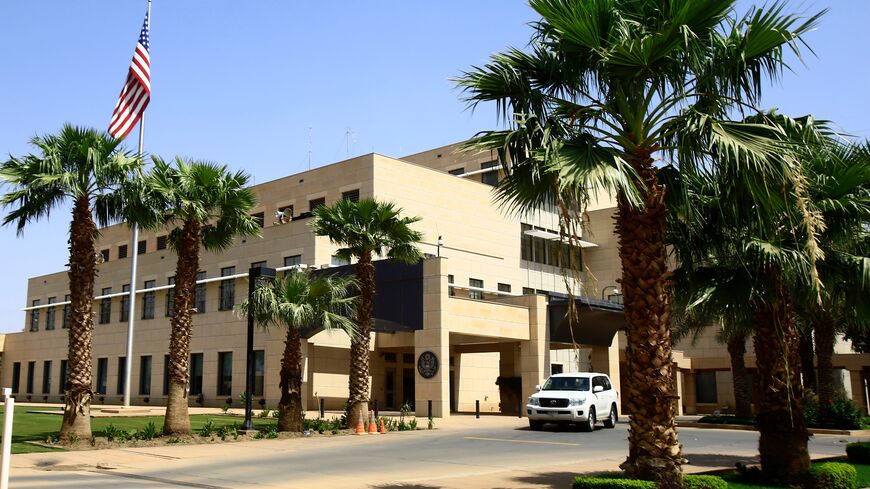WASHINGTON — The United States is pushing for an immediate end to the bloodshed that threatens to tear apart Sudan and destabilize the wider Horn of Africa region, but it now must do so without any American diplomats stationed in Africa’s third-largest country.
Washington whisked diplomatic personnel out of the Sudanese capital, Khartoum, on Saturday, just over a week after the conflict broke out between forces loyal to Sudan’s warring generals, army chief Abdel Fattah al-Burhan and Mohamed Hamdan “Hemedti” Dagalo, who leads the paramilitary Rapid Support Forces (RSF).
The special forces operation to airlift US government personnel and their families out of Sudan on MH-47 Chinook helicopters came as the fighting raged in Khartoum and its twin city, Omdurman. More than 400 people, including one US citizen, have died in the clashes between Hemedti and Burhan’s forces, and millions more are stranded with limited access to food and water.
US Assistant Secretary of State for African Affairs Molly Phee told reporters late Saturday that the US diplomatic effort in Sudan would be “degraded” but “not abated” as the embassy suspends operations for what the Biden administration hopes will be a temporary period until security conditions improve. A number of locally employed staff remain in a "caretaker status" at the embassy compound, which is located on the southern fringes of Khartoum.
Saturday’s pullout isn’t the first time American diplomats have withdrawn from Sudan, where Palestinian gunmen took hostages and killed the US ambassador in 1973. Sudan’s links to international terrorism under former dictator Omar al-Bashir forced several drawdowns and evacuations of US government personnel from Khartoum in the 1980s and 1990s.
It was not immediately clear when embassy staff, including John Godfrey — who nearly eight months ago arrived in Sudan as its first US ambassador in a quarter-century — will return to the country, or whether the United States would establish a remote mission in the region as it's done following conflicts in Yemen, Libya and Somalia.
Secretary of State Antony Blinken said Monday the United States was exploring options to resume a diplomatic presence in the country, potentially in Port Sudan on the Red Sea, some 525 miles away from Khartoum.
In the meantime, Blinken said US officials will continue speaking directly to Sudan's warring generals, as he did twice last week. Officials are also coordinating with US partners that have influence in Sudan, including Saudi Arabia, United Arab Emirates and Egypt.
The United States itself wields little leverage over Sudan, a country that spent two decades under heavy US sanctions before they were formally lifted in 2017. The Biden administration already suspended some $700 million in assistance to Sudan following the October 2021 military coup that was jointly orchestrated by Burhan and Hemedti.
Jeffrey Feltman, a former US special envoy for the Horn of Africa in the Biden administration, suggested the administration consider other punitive measures to sway Sudan’s military leaders, in particular Hemedti, “rather than trying to assume that he cares about the overall governance of the country.”
“Clearly pausing US assistance overall has not provoked any kind of recalculation on their part,” Feltman said in a recent interview. “What are their personal interests that could be affected?”
Rights groups have compiled evidence of vast human rights abuses committed by forces loyal to Burhan and Hemedti, the latter of whom has been seriously considered by the Biden administration for designation under the Global Magnitsky Act. Hemedti’s family ties to the lucrative gold trade, much of which is reportedly smuggled out to Russia through Emirati middlemen, has made him one of Sudan’s richest men.
As recently as December, when Sudan’s military and civilian leaders reached a framework agreement to pave the way for eventual elections, Blinken threatened to impose travel bans on current and former Sudanese officials who undermine the African country's democratic path.
When Sudan’s democratic transition went up in flames last week, Sens. Bob Menendez (D-N.J.) and Jim Risch (R-Idaho), chairman and ranking member of the Senate Foreign Relations Committee, urged the administration to make good on that promise with targeted sanctions.
The Biden administration designated Sudan's Central Reserve Police in March 2022 for its involvement in serious human rights violations but stopped short of imposing sanctions on leading Sudanese military figures. Last week, Foreign Policy reported the Biden administration was drafting a wider sanctions package targeting members of Sudan's army and RSF.
Cameron Hudson, a former chief of staff to successive US special envoys to Sudan, said Biden officials should have applied sanctions when they had the chance but doing so now could put US citizens in Sudan at risk for retribution.
Hudson said Washington’s best leverage is building a diplomatic coalition that will signal to Sudan’s Burhan and Hemedti they will be held accountable for their atrocities and kept financially isolated after the war is over.
“These two are locked in a death spiral, and even the threat of sanctions is not going to be enough to get them to relent,” Hudson said.
Neither of Sudan's warring factions appear willing to back down from their conflict, now in its second week. The mass exodus of diplomats could open the door to even more bloodshed.
“There was a sense that as long as the foreign personnel were in the country, that there were eyes on the situation,” Hudson said. Without an international presence, “You're going to see unrestrained warfare.”







